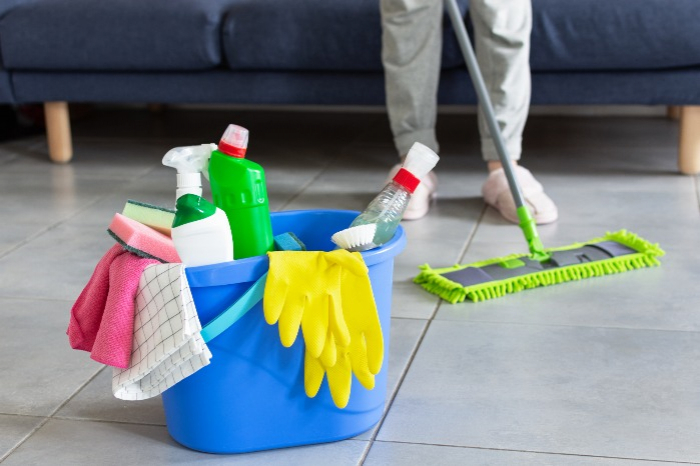 In today’s globalized world, cultural diversity is becoming increasingly important. It is essential that we learn to appreciate and understand each other’s cultures to build a more connected and tolerant society. One of the best ways to learn about different cultures is through personal interactions with people from diverse backgrounds. In many countries, foreign domestic helper(外傭) play a crucial role in homes, and they can be an excellent source of cultural enrichment for families. In this blog post, we will explore how these helpers can help families learn about different cultures and values.
In today’s globalized world, cultural diversity is becoming increasingly important. It is essential that we learn to appreciate and understand each other’s cultures to build a more connected and tolerant society. One of the best ways to learn about different cultures is through personal interactions with people from diverse backgrounds. In many countries, foreign domestic helper(外傭) play a crucial role in homes, and they can be an excellent source of cultural enrichment for families. In this blog post, we will explore how these helpers can help families learn about different cultures and values.
Sharing cultural traditions
Foreign domestic helpers come from different countries and have unique cultural traditions that they can share with their host families. They can introduce families to new types of food, music, and festivals. Moreover, they can teach children about their country’s history and cultural values. For instance, they can tell stories about the significance of certain festivals, such as Chinese New Year or Diwali, and why they are essential in their culture. This type of cultural exchange can help children develop a more profound appreciation for other ways of life.
Language learning opportunities
Having a foreign domestic helper in the home can provide an excellent opportunity for families to learn a new language. Immersion in a language is one of the most effective ways to learn it, and children, in particular, benefit from interacting with someone who speaks a different language. For example, a helper who speaks Mandarin can teach children basic phrases and sentences, paving the way for more advanced language learning in the future. Moreover, learning a new language can help children become better communicators and open up more opportunities for them in the future.
Understanding different cultural norms
Foreign domestic helpers come from countries with different cultural norms and values. For example, in some cultures, it is customary to take off shoes when entering a home, or it may be customary to greet people with a bow or a handshake. Children can learn about these different cultural norms from their foreign helpers and develop a deeper understanding of how different cultures view things differently. This understanding can foster tolerance and respect and help children develop into responsible global citizens.
Mutual cultural exchange
Cultural enrichment is not a one-way street – both parties can benefit from learning about each other’s cultures. Host families can introduce their helpers to their local customs and traditions, and in turn, learn about the customs that the helper brings with them. For example, host families can share local foods or take their helpers to local festivals or cultural events. This mutual exchange can create a bond between both parties and foster a sense of community.
A unique perspective
Finally, having a foreign domestic helper in the home can provide a unique perspective on global issues. They may have experienced challenges that the host family may not have, such as dealing with culture shock or the difficulties of living in a foreign country. By learning about these experiences, children can begin to think more deeply about issues such as immigration, globalization, and cultural identity.
In conclusion, foreign domestic helpers are valuable contributors to households, and they can provide families with a wealth of cultural enrichment opportunities. From sharing cultural traditions to providing language learning opportunities, these helpers can play an essential role in fostering mutual understanding and respect between different cultures. In today’s ever more interconnected world, this type of cultural enrichment will be increasingly important for building a more peaceful and connected society.

 Rayo Vallecano’s Top 10 Moments in History
Rayo Vallecano’s Top 10 Moments in History  Social Aspects of UFA Gambling: Playing Online with Friends
Social Aspects of UFA Gambling: Playing Online with Friends  Construction Foreman Jobs: Where to Find Opportunities in 2024
Construction Foreman Jobs: Where to Find Opportunities in 2024  The Art of Precision in Emergencies: Dr. Robert Corkern’s Techniques
The Art of Precision in Emergencies: Dr. Robert Corkern’s Techniques  Why SmartMove TransUnion is a Game Changer for Rental History and Eviction Checks
Why SmartMove TransUnion is a Game Changer for Rental History and Eviction Checks  How Engaging Animations Online Can Transform Your Marketing
How Engaging Animations Online Can Transform Your Marketing  Navigating the World of CFD Brokers: Top Tips for Secure and Profitable Trading
Navigating the World of CFD Brokers: Top Tips for Secure and Profitable Trading  Unveiling the Best Legal Steroid Alternatives: A Comprehensive Guide to Safe and Effective Performance Enhancement
Unveiling the Best Legal Steroid Alternatives: A Comprehensive Guide to Safe and Effective Performance Enhancement 





